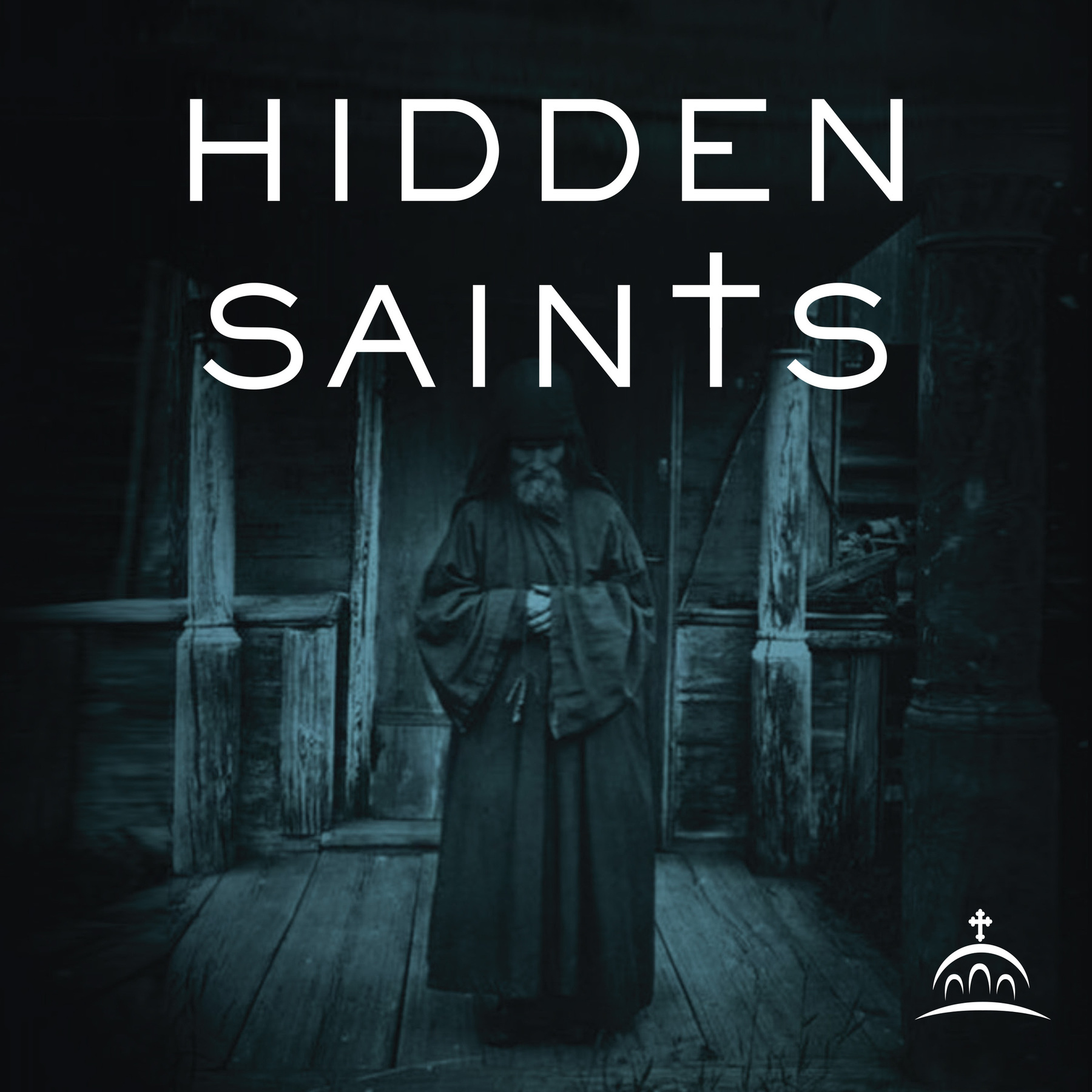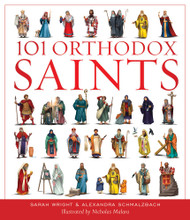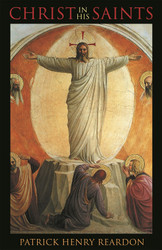
Saint of the Day
Daily Orthodox Saints
The Saint of the Day briefly tells the story of one of our venerable Saints we are commemorating for each day. It is heard eight times daily Monday—Friday, and is also available as a podcast. Our reader is a professional actor and an ordained Deacon in the Orthodox Church, Dn. Jerome Atherholt.
Support podcasts like this and more!
Donate Now
Thursday, January 29, 2026
Our Holy Father Aphrahat the Persian (4th c.)
He was from the pagan Persian aristocracy, but came to faith in Christ and left his home for the Christian city of Edessa, where he was baptized. He later moved to Antioch, where he lived in prayer and asceticism a short distance from the city. He ate nothing but a small amount of bread until he was extremely old, when he added some greens to his diet. Though he knew very little Greek, he was empowered by the Holy Spirit to win many converts to Christ and to confound the learned Arian heretics who were disturbing the Church in Antioch.
When Aphrahat learned that the Arian Emperor Valens was persecuting Christ's Church, he moved to the city to support the true Faith. One day the Emperor himself met Aphrahat in the city square and asked him why he had left his solitude and come to Antioch. The Saint answered 'Tell me this: if I were a maiden at home in my secluded apartment and saw someone setting fire to my father's house, would you not advise me to put out the blaze as soon as possible? That is what I am doing now, because the Church, the heavenly Father's house, is burning down inthe fire that you have set!' One of the Emperor's attendants threatened Aphrahat with death for this impertinence; but the attendant himself later perished, drowned as he was heating water for the Emperor's bath. This made the Emperor afraid to persecute the holy one, who continued to preach the true Faith and to perform many miracles. He reposed in peace.
Wednesday, January 28, 2026
Our Holy Father Isaac the Syrian, bishop of Nineveh (7th c.)
He was born early in the seventh century in the East. His birthplace is unclear: the Great Horologion says that he was born in eastern Arabia (present-day Qatar); the Synaxarion that he was born in Kurdistan. While still young he entered the Lavra of St Matthew with his brother, but after a few years of monastic life, having advanced far in obedience and the practice of prayer, he withdrew into the desert. His reputation for holiness reached the city of Nineveh, where the people prevailed on the hierarchy to consecrate him as their bishop in 670. Reluctantly but obediently, St Isaac took up the duties of shepherd of his flock in Nineveh. After a few months, he was called on to settle a dispute between two of the faithful, but they rejected his counsel and said 'Leave your Gospel out of this matter!' The holy bishop said, 'If they are not prepared to obey Our Lord's commandments, what need have they of me?', and retired to live as a hermit in the mountains of Kurdistan. Later, he settled in the monastery of Raban Shapur, where he wrote his Ascetical Homilies and other jewel-like works on the spiritual life. There he reposed in peace.
The fame of St Isaac' Homilies spread, and about one hundred years after their writing they were translated from Syriac into Greek by two monks in Palestine. In this form they spread throughout the monastic world, becoming a treasured guide to those who seek the fullness of the life of prayer. The Synaxarion says, "The book of Saint Isaac is, with the Ladder of Saint John Climacus, the indispensible guide for every Orthdox soul to journey safely toward God. Hence, not many years ago, a holy spiritual father, Jerome of Egina (d. 1966), recommended begging, if necessary, in order to be able to purchase a copy." We are blessed to have a good translation of the Ascetical Homilies available in English.
Saint Isaac is a very unusual case of an Orthodox Saint who lived outside the canonical boundaries of the Church: he was a bishop of the "Nestorian" communion, now sometimes called the "Oriental Orthodox." The purity of his own Orthodox faith is so clearly evident in his writings that the Church has nonetheless recognized his sanctity.
Tuesday, January 27, 2026
Translation of the relics (437) of St John Chrysostom
In the year after the Saint's repose both the Emperor Arcadius and his wife Eudoxia, who had been most responsible for St John's exile, died. Their son Theodosius II succeeded to the throne. Soon most of the exiled supporters of St John were restored to their sees. In 434 St Proclus, a disciple of St John Chrysostom, was made Archbishop of Constantinople, and persuaded the Emperor to have St John's relics solemnly translated from Comana to Constantinople. But all efforts to disinter his remains failed, as if his coffin were sealed in the earth. Learning of this, the Emperor wrote a letter to St John asking forgiveness for his father's persecution, and pleading with him to agree to return to the Imperial City for the benefit of the faithful. As soon as this letter was placed over the Saint's tomb, his coffin was removed with no difficulty and conveyed solemnly to Constantinople.
When the cortege reached Constantinople, the Emperor met it and prostrated himself before it, once again begging the Saint's forgiveness for the sins of the State against him. At last, the relics were deposited beneath the altar of the Church of the Holy Apostles, where they worked many miracles during the celebration of the Liturgy. Since then, the relics have been scattered throughout the world, where they never fail to reveal the Saint's loving presence.
Monday, January 26, 2026
Our Holy Mother Paula of Rome (404)
She was born in 347 to a noble family in Rome, and at age sixteen married Toxotius, a prominent nobleman. Though her husband was a pagan, he was devoted to her and gave her freedom to keep a Christian home and rear her children as Christians. They were blessed with five children. When she was thirty-two her husband died suddenly, and Paula resolved to turn her large house in Rome into a monastery. Later she traveled to the Holy Land with her spiritual father St Jerome (June 15). In Bethlehem she established two monasteries, one for women (where she dwelt) and one for St Jerome and his companions. Every day the nuns chanted the entire Psalter, which they were required to learn by heart. Paula was exceptionally austere in her fasting and lavish in her almsgiving, often giving away to the poor even the goods needed by her community for subsistence. She aided her spiritual father and brother Jerome in his controversies with Origen's followers: St Jerome himself was hot-tempered, and St Paula often exhorted him to confront his enemies with patience and humility.
When she was fifty-six years old, she felt her death approaching, and heard Christ say to her 'Rise up, my love, my fair one, and come away; for lo, the winter is past, the rain is over and gone' (Song of Songs 2:10-11). To this she replied 'The time of harvest has come. I shall truly see the good things of the Lord in the land of the living,' and gave up her soul joyfully. Her funeral was attended by throngs of monks, nuns and poor people, all of whom revered her as their mother and benefactress.
Sunday, January 25, 2026
Our Father among the Saints Gregory the Theologian, Archbishop of Constantinople (389)
This light of the Church is one of only three holy Fathers whom the Church has honored with the name "the Theologian" (the others are St John the Evangelist and Theologian, and St Symeon the New Theologian).
He was born in 329 in Arianzus in Cappadocia to a pious and holy family: his father Gregory, mother Nonna, brother Caesarius and sister Gorgonia are all counted among the Saints of the Church. His father later became Bishop of Nazianzus. He studied in Palestine, then in Alexandria, then in Athens. On the way to Athens, his ship was almost sunk in a violent storm; Gregory, who had not yet been baptized, prayed to the Lord to preserve him, and promised that henceforth he would dedicate his entire life to God. Immediately the storm ceased.
In Athens, Gregory's fellow students included St Basil the Great and the future Emperor Julian the Apostate. The friendship between Gregory and Basil blossomed into a true spiritual friendship; they were loving brothers in Christ for the rest of their lives. After completing their studies, Sts Gregory and Basil lived together as monks in hermitage at Pontus. Much against St Gregory's will, his father ordained him a priest, and St Basil consecrated him Bishop of Sasima (in the Archdiocese of Caesarea, over which St Basil was Archbishop).
In 381 the Second Ecumenical Council condemned Macedonius, Archbishop of Constantinople, and appointed St Gregory in his place. When he arrived in the City, he found that the Arians controlled all the churches, and he was forced to "rule" from a small house chapel. From there he preached his five great sermons on the Trinity, the Triadika; these were so powerfully influential that when he left Constantinople two years later, every church in the City had been restored to the Orthodox.
St Gregory was always a theologian and a contemplative, not an administrator, and the duties of Archbishop were agonizing to him. In 382 he received permission from a council of his fellow-bishops and the Emperor to retire from the see of Constantinople. He returned to Nazianzus (for which reason he is sometimes called St Gregory of Nazianzus). There he reposed in peace in 391 at the age of sixty-two.
His writings show a theological depth and a sublimity of expression perhaps unsurpassed in the Church. His teaching on the Holy Trinity is a great bastion of Orthodox Faith; in almost every one of his published homilies he preaches the Trinity undivided and of one essence.
 Dn. Jerome Atherholt
Dn. Jerome Atherholt






